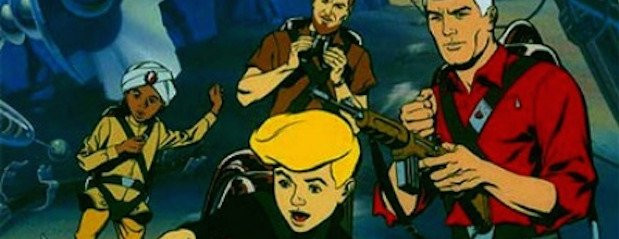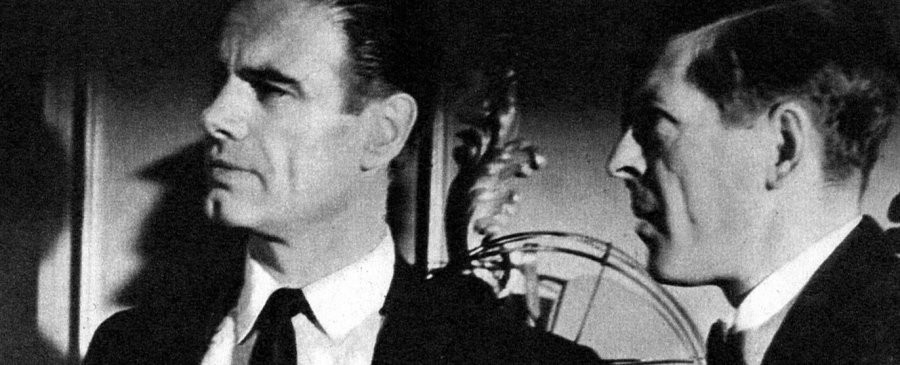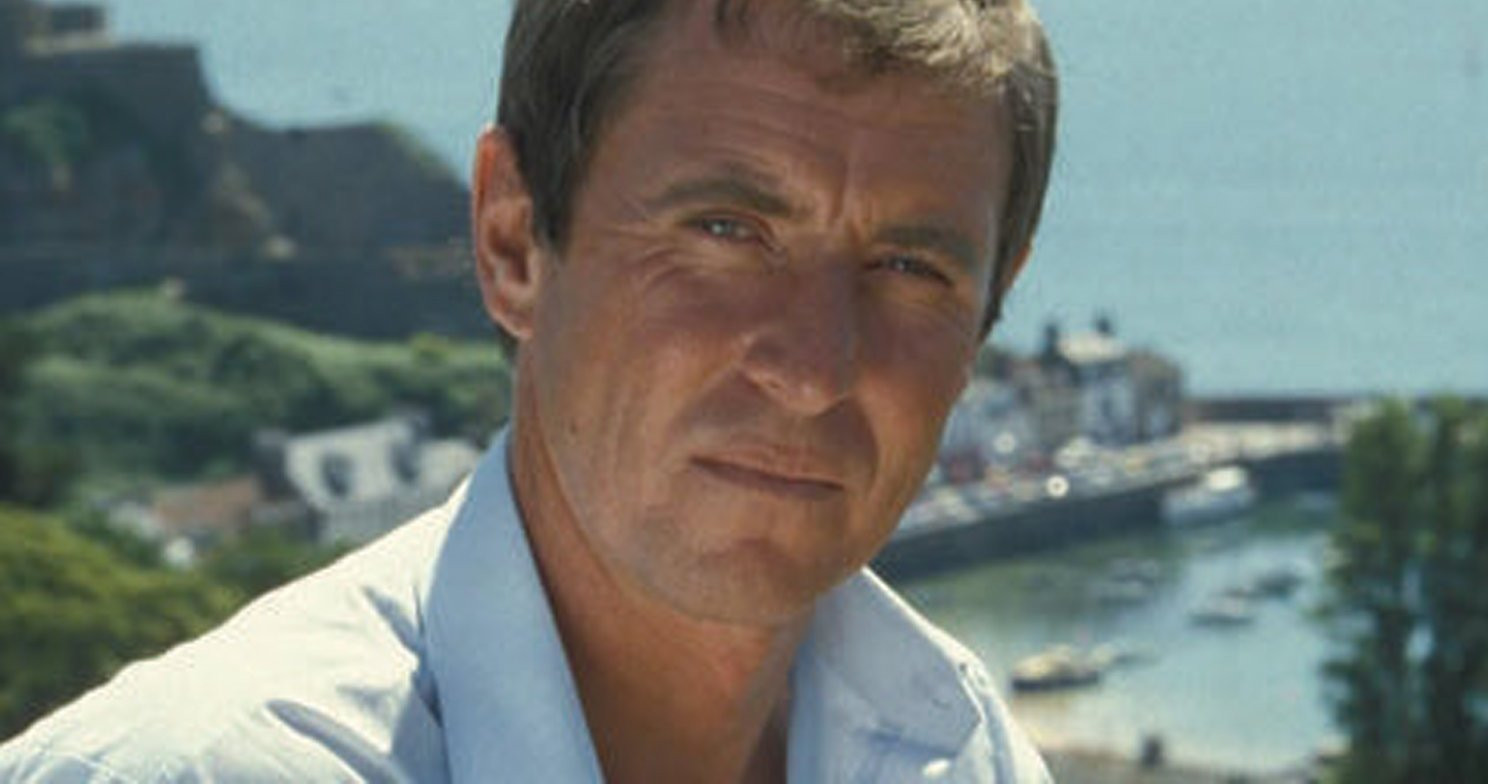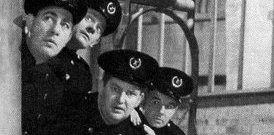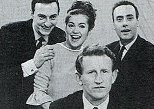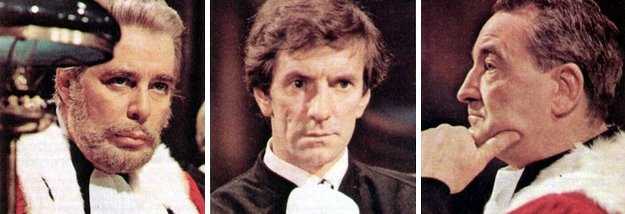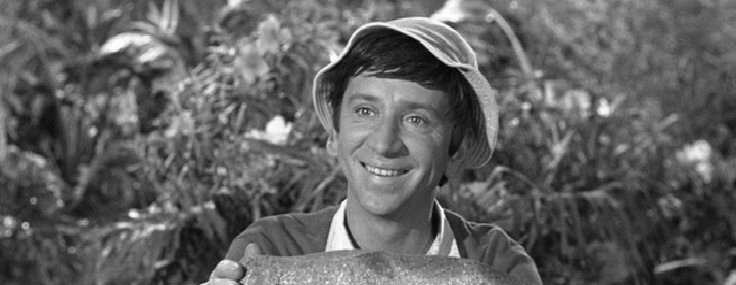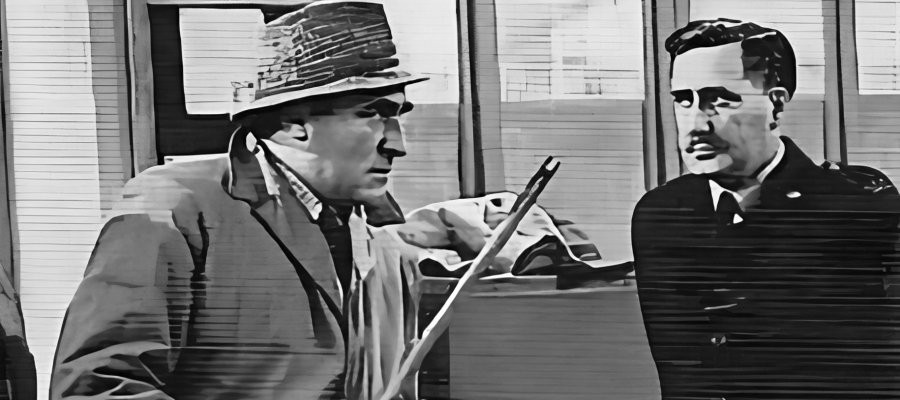
Cluff
1964 - United KingdomSergeant Caleb Cluff (Leslie Sands*) who first appeared in an episode of the anthology series Detective (an episode entitled The Drawing broadcast on 6 April, 1964) was a plodding sort of detective, much more at home taking a good walk with his pipe in his mouth, his chestnut walking stick in his hand and his faithful dog, Clive (a half-breed black and tan) by his side.
But any no-gooder underestimating the tweed-suited detective would do so at their own cost because Cluff's slow methodology belied a skilfully perceptive insight into human nature and behaviour, particularly in the criminal mind. This slow style of his was often the cause of much frustration from his superior, Inspector Mole (originally played by Eric Barker and later Michael Bates), but no one could argue with Cluff's detection rate and his junior sidekick DC Barker (John Rolfe) certainly benefited from working alongside the bachelor sergeant who lived alone with daily visits from his housekeeper, Annie Croft (Olive Milbourne) in the fictional Yorkshire moorland town of Gunnershaw. The series was created and written by Gil North and ran for two series, Terence Dudley and Alan Seath sharing the production credits. Cluff was fairly described as a sort of 'Maigret of Yorkshire' and in fact Rupert Davies as Maigret introduced the first episode.
*Bradford born Leslie Sands got his first education at the local High School before reading English at Leeds University, where he opened his dual career by taking part in amateur productions and also writing his first play, before the R.A.F claimed him for five years' war service. At the war's end he found himself with Peter Sallis, running the station theatre at Cranwell and made his final decision to risk the professional stage. Within two days of demobilization he had fixed a small part in a production of Antony and Cleopatra, in London's West End, and he followed this with Michael Redgrave's Macbeth. Two years with the Bristol Old Vic polished his classical technique yet further, and he then decided to move to commercial repertory. His reasons were, of course, carefully worked out; on the one hand he could enlarge his professional range, on the other he could get on with some writing. Subsequently he adopted Z Cars, still in his dual author-actor capacity. He wrote three episodes, appeared in six as Superintendent Miller. But then caution told him to let it go at that. "Miller's a strong character," he says, "a bit too memorable - and I didn't want to become identified with him".
Seen this show? How do you rate it?
Seen this show? How do you rate it?
Published on December 4th, 2018. Radio Times, August 27, 1964.



